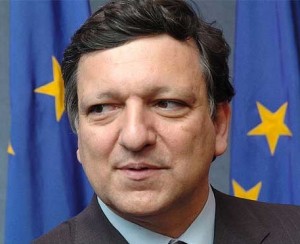EC agrees copyright modernisation actions
December 6, 2012
By Colin Mann
 At the initiative of President Barroso, the European Commission held an orientation debate December 5th on content in the digital economy and has agreed a way forward for modernising copyright in the digital economy
At the initiative of President Barroso, the European Commission held an orientation debate December 5th on content in the digital economy and has agreed a way forward for modernising copyright in the digital economy
According to the EC, the digital economy has been a major driver of growth in the past two decades, and is expected to grow seven times faster than overall EU GDP in coming years. Online, there are new ways of providing, creating and distributing content, and new ways to generate value. “This represents a challenge and an opportunity for all the creative industries, authors and artists and other actors in the digital economy,” says the Commission.
The Commission’s objective is to ensure that copyright stays fit for purpose in this new digital context. “Good progress has been made in implementing the May 2011 Intellectual Property Rights Strategy, but there remain a series of issues which need to be addressed to ensure an effective single market in this area,” it advises.
The Commission says it will therefore work for a modern copyright framework that guarantees effective recognition and remuneration of rights holders in order to provide sustainable incentives for creativity, cultural diversity and innovation; opens up greater access and a wider choice of legal offers to end users; allows new business models to emerge; and contributes to combating illegal offers and piracy.
Accordingly, the Commission has agreed on two parallel tracks of action:
1) Immediate issues for action: launch of stakeholder dialogue
A structured stakeholder dialogue will be launched at the start of 2013 to work to address six issues where rapid progress is needed: cross-border portability of content, user-generated content, data- and text-mining, private copy levies, access to audiovisual works and cultural heritage. The discussions will explore the potential and limits of innovative licensing and technological solutions in making EU copyright law and practice fit for the digital age.
This process will be jointly led by Michel Barnier, Neelie Kroes and Androulla Vassiliou. By December 2013 the College will take stock of the outcome of this dialogue which is intended to deliver effective market-led solutions to the issues identified, but does not prejudge the possible need for public policy action, including legislative reform.
2) Medium term issues for decision-making in 2014
This track will include the completion of the relevant market studies, impact assessment and legal drafting work with a view to a decision in 2014 whether to table legislative reform proposals. The following four issues will be addressed together: mitigating the effects of territoriality in the Internal Market; agreeing appropriate levels of harmonisation, limitations and exceptions to copyright in the digital age; how best to reduce the fragmentation of the EU copyright market; and how to improve the legitimacy of enforcement in the context of wider copyright reform. Based on the outcomes of this process the Commission will decide on the next steps necessary to complete its review of the EU copyright framework.
